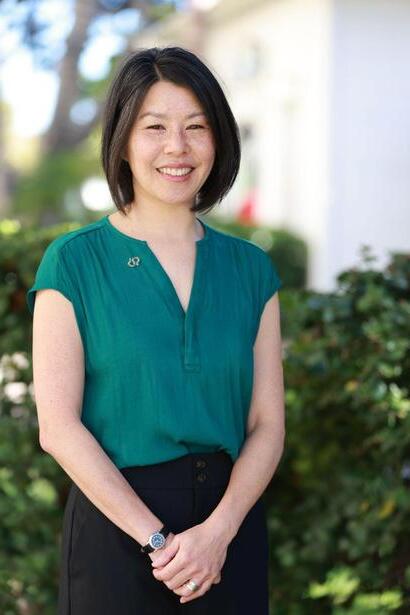American Indian Elders Conference

Harrah’s Cherokee Casino Resort
Harrah’s Cherokee Casino Resort
Cherokee, NC Cherokee, NC
September 25-29, 2023
September 25-29, 2023


Harrah’s Cherokee Casino Resort
Harrah’s Cherokee Casino Resort
Cherokee, NC Cherokee, NC
September 25-29, 2023
September 25-29, 2023
Aha, Hawe pi hintaro wori mitawe heda. Xra DaMi Inganye ki. Jiwere-Nutachi Bahkoje nyi ki heda. Tunahpi hakiraje ki.
Hello friends and relatives. My name is Real Eagle Woman. I am also called Billie Tohee. I am an enrolled member of the Otoe-Missouria Tribe of Oklahoma and a descendant of the Iowa Nation of Oklahoma. I am Bear Clan.
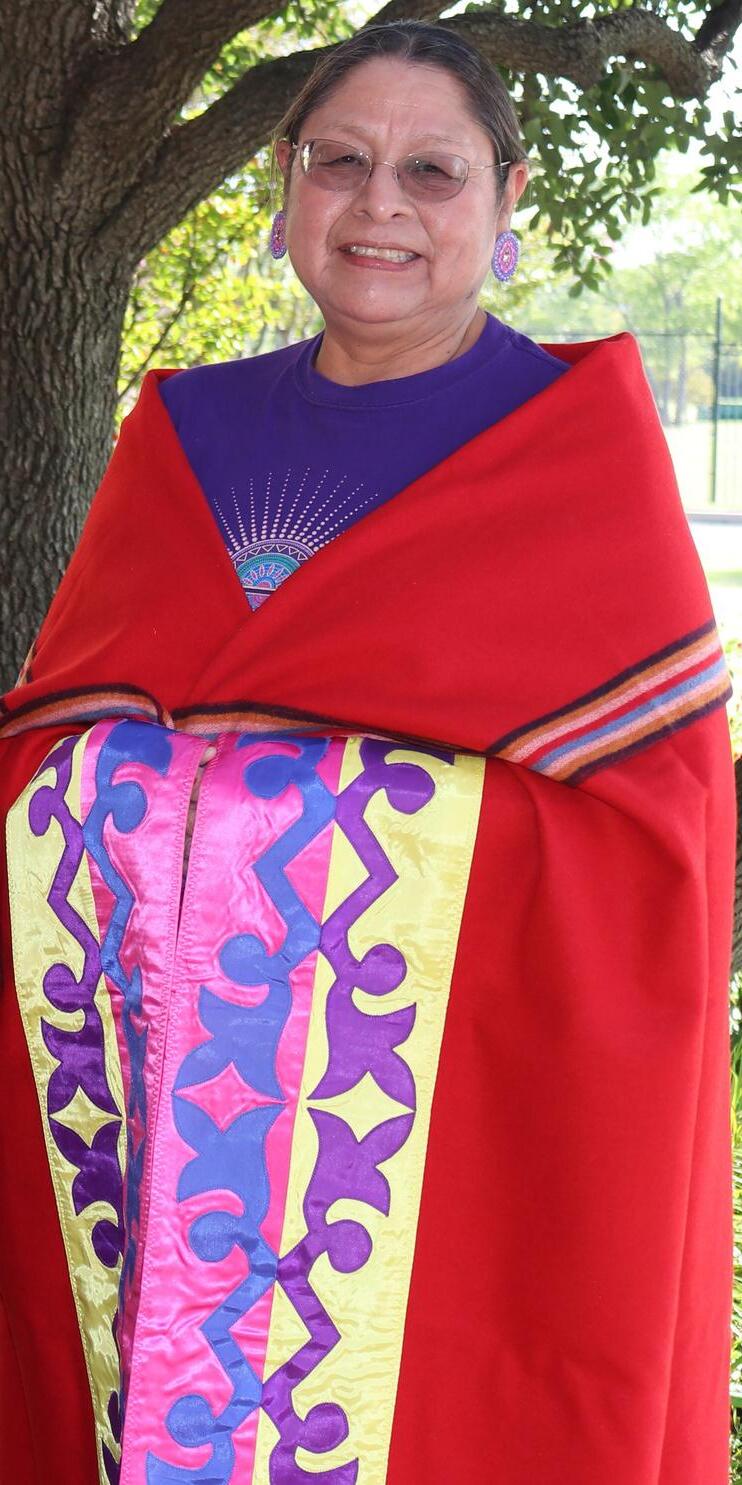
As the NICOA National Chair, I welcome all Indigenous elders from all directions to the 2023 National Indian Council on Aging (NICOA) conference, and I welcome you to Cherokee, North Carolina. It is a pleasure to be with you today in the land of our Cherokee relatives. NICOA is incredibly appreciative for the chance to gather together and share our knowledge with one another.
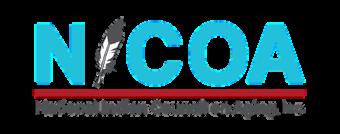

We, as Native American elders, provide wisdom and leadership for our people and tribes by showing and giving grace, wisdom, guidance and knowledge in our daily words and actions. We are the heartbeat of our tribes. Our age and wisdom allow us to perceive clearly from a cultural and spiritual perspective. It is of utmost importance that Native elders across this Nation be treated with the respect and reverence we so well deserve. Oftentimes, when an elder speaks, the individual with “teachings” knows to listen. Our wisdom is invaluable to a tribe’s culture, tradition, and well-being. I hope you enjoy your time with us during this year’s conference.
Aha, warigroxi ki. Thank you.
Billie Tohee, Chair NICOAWelcome
NICOA Mission and Staff
NICOA Board of Directors
Board Member Nominations
NICOA Programs and Services
Conference Info Resolutions
Membership
Exhibitors
Meal Events
Agenda
Special Sessions
Listening Sessions
Plenary Sessions
Workshop Descriptions
Workshop Times & Locations
Speaker Profiles
Venue Map
Page 1
Page 8
Page 10
Page 12
Page 14
Page 16
Page 16
Page 16
Page 16
Page 17
Page 18
Page 20
Page 21
Page 22
Page 24
Page 41
Page 46
Page 57
Larry Curley, Executive Director
Cheryl J. Archibald, Executive Assistant Leslie Maly, SCSEP Director
Chairperson Billie Tohee (Otoe-Missouria Tribe), Southern Plains Region
Vice Chairperson Mary Jo Hunter (Ho-Chunk Nation), Midwest Region
Treasurer Edna Riley (Athabascan), Alaska Region
Secretary Eddie Tullis (Poarch Band of Creek Indians), Eastern Region
Robert LaFromboise (Sisseton-Wahpeton Oyate), Great Plains Region
Betti Delrow (Navajo Nation), Navajo Region
James DeLaCruz (Quinault Indian Nation), Northwest Region
Lillian Thomas (Muscogee [Creek] Nation), Eastern Oklahoma Region
Wilma Toledo (Jemez Pueblo), Southwest Region
Phyllis Antone (Gila River Indian Community), Western Region
Logo by Mike Tungate of EnvisionIT Solutions


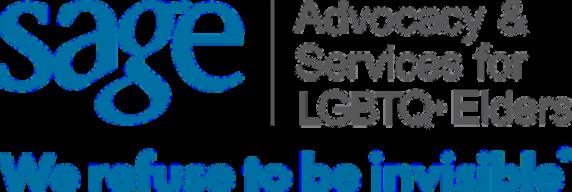


Translation by Esteemed Fluent Cherokee language speaker Wiggins Blackfox (Eastern Band of Cherokee Indians), New Kituwah Academy

ThisAARP-sponsoredresearchilluminatesthevulnerabilityofAmericanIndianandAlaska Nativecommunitiestofraudulentactivities,pointingtowardmeansofaddressingtheissue.
Throughaseriesoffocusgroupsandin-depthinterviews,theresearchoffersvaluable insightsforempoweringAmericanIndianandAlaskaNativecommunitiestorecognizeand preventfraudwithintheircommunities.
TolearnmoreabouttheFraudWatchnetwork,visit TolearnmoreabouttheFraudWatchnetwork,visit aarp.org/fraudwatchnetwork aarp.org/fraudwatchnetwork
//aarpfraudwatchnetwork aarpfraudwatchnetwork





Welcome to the National Indian Council on Aging's (NICOA) American Indian Elders Conference! This year’s theme is “A Trail of Determination: Our Culture, Our History and Our Future.” American Indian and Alaska Native elders have always held esteemed positions in their communities. They are the remnants of the cultures of their respective tribes. The cultures they embody are a testament to the history and continued existence of Native peoples.
They represent the flight of the arrow of all that is Native American, and it’s our job to carry their legacy into the future The culture, the history and the continued existence of Native people in this country is dependent on the willingness of future generations to embrace all that is Native. The conference is the elders’ opportunity to share their wisdom, experience and knowledge with the world. It is your opportunity to carry the legacies of your elders as well as create your own.
This is the time for tribal leaders, policymakers and tribal elders to express their needs and make policy recommendations for the vital events occurring in years to come. The events that follow the conference will shape the policies and laws that will affect Native elders for the next decade Tribal leaders, youths, service providers and policymakers are encouraged to learn, share and shape those policies
The 2024 Presidential and National Elections: National elections for the Executive Office of the President of the United States, and both houses of Congress will be on the ballot. The outcome of this election will affect policies and laws that will either be beneficial or detrimental to Native elders as well as Indian Country as a whole. A new administration will have the power to select the new secretaries of agencies like the Departments of Health and Human Services, Interior, Justice, Labor, etc This will greatly impact the next events

The 2025 Reauthorization of the Older Americans Act: The Older Americans Act (OAA) was last reauthorized in 2020 with another reauthorization possible in 2025 Title VI, Title V (the Senior Community Service Employment Program), Title IV and Title VII all directly impact our Native elders However, whether they will be passed will depend entirely on the elections held in 2024.
The 2025 White House Conference on Aging: The last decennial conference was held in 2015 and discussions are being held at the national level regarding the next possible White House Conference on Aging. NICOA has recommended that there be a special conference for Indian Country during a meeting of the national aging organizations and referenced the “tribal consultation” requirements of former President Barack Obama’s Presidential Executive Order. This proposal was supported by many organizations. NICOA’s 2025 American Indian Elders Conference in Durant, Oklahoma could be submitted and considered as the “American Indian White House Conference on Aging ”


The National Indian Council on Aging (NICOA) staff is comprised of a passionate, distinguished and highly committed leadership team working to collectively improve health, social services and economic well-being for all American Indian and Alaska Native elders. Each staff member plays a complementary role to NICOA and each one is committed to operating with the utmost integrity, accountability and responsibility to NICOA’s stakeholders. NICOA is proud to have leaders who are field experts with proven experience in advocacy, support, technical assistance and training. Together, this group guides the collective efforts of NICOA.
Larry Curley, (Navajo Nation), Executive Director
Cheryl J. Archibald, Executive Assistant
Keith Pike (Pomo Tribe), Director of Development
Jeffrey Wilson, Office Manager
Charlene Notah (Navajo/Mexican), Administrative Assistant
Agnes Maldonado, Finance Director
Carla Leigh, Accounting Specialist
Rebecca Owl Morgan (Eastern Band of Cherokee Indians), Project Coordinator
Kayla Sawyer, Technical Communications Analyst
Desiree Lapahie (Navajo Nation), Data Analyst
A federally funded program sponsored through NICOA since 1989. The program operates in seven states (AZ, MN, NM, OK, ND, SD, WI). SCSEP is designated under the Older Americans Act and provides meaningful part-time employment and training to help elders 55 and older transition into employment in their communities.

SCSEP Headquarters Office (ABQ)
Leslie Maly, SCSEP Director
Jose Troncoso, Compliance/Records Manager
SCSEP Southwest Region Office (ABQ)
Amie Barnes, SCSEP Southwest Region Program Manager
Calinda Yazzie (Navajo Nation), Employment Specialist

SCSEP Central Region (OKC)
Lakeshia Cade, SCSEP Central Region Program Manager
Edward Irby, Job Developer
Carolyn Sims (Cherokee Nation), Employment Specialist
SCSEP Great Plains Region (ND, SD)
Lynn Wise, North Dakota Program Manager
Cindy Haderlie, North Dakota Employment Training Coordinator
Bonnie Davis (Turtle Mountain Band of Chippewa Indians), North Dakota Employment Training Coordinator
Patrick Enwerem, North Dakota Job Developer
Mamissa Evans, South Dakota Program Manager
LuAnn Pfeifle, South Dakota Job Developer
Karen Artichoker (Oglala Sioux Tribe), South Dakota Employment Training Coordinator
Jessica Snaza, South Dakota Employment Training Coordinator
SCSEP Participant Staff
North Dakota
Veronica Crawford
Alice Johnston
Gaylene Martin
Bonita Sasse
Oklahoma
Hope Franklin Brown
Brenda Smith
South Dakota
Sharon Birgholtz
Marlyce Miner
George Twiss

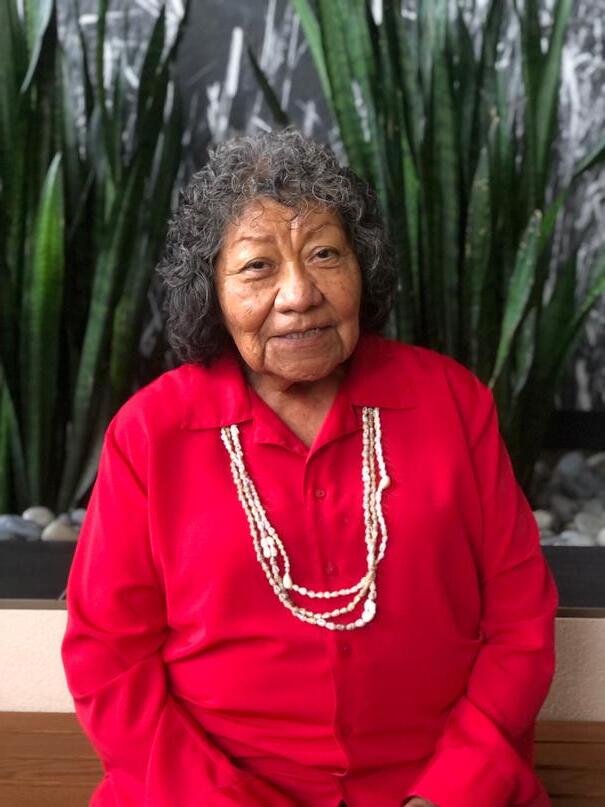
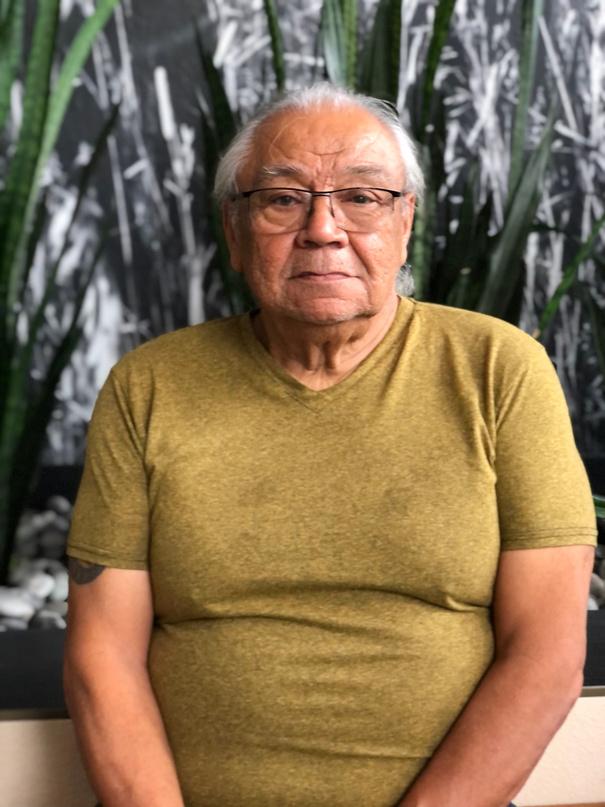
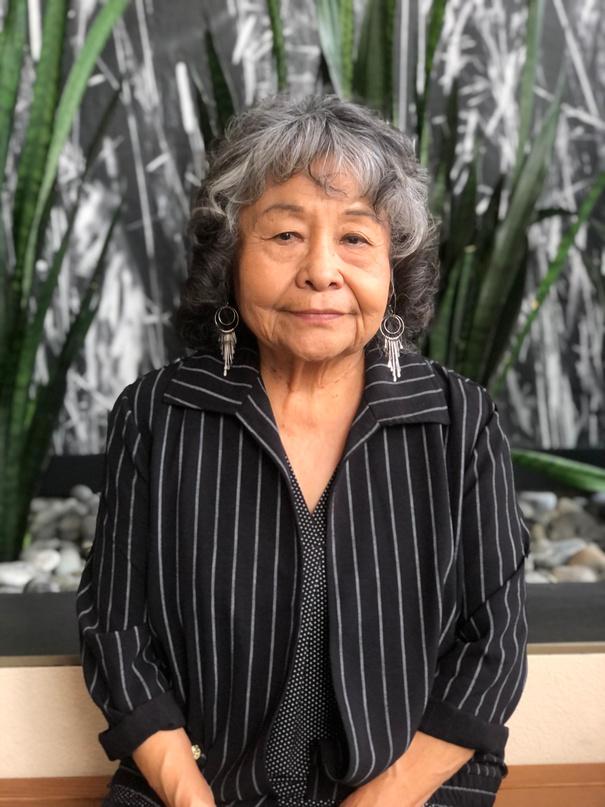





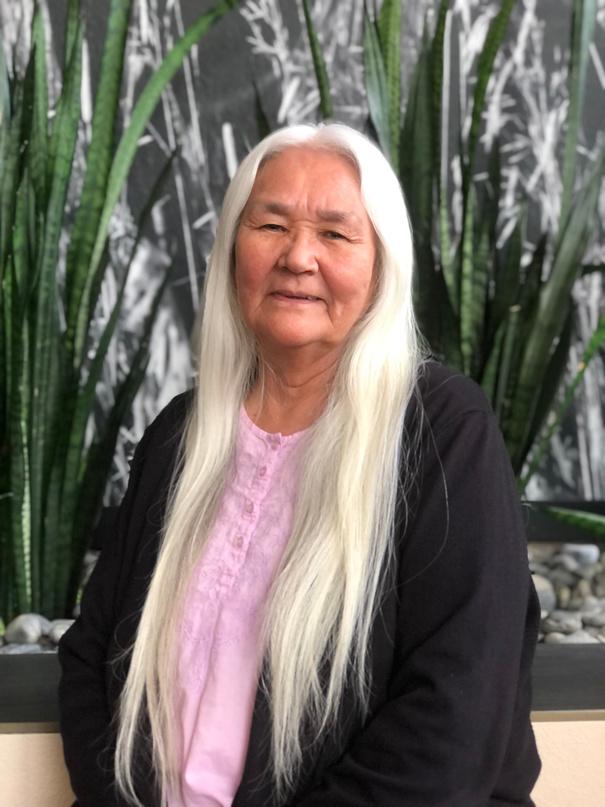 Lillian Thomas Muscogee (Creek) Nation
Quinault Indian Nation
Chairperson
Billie Tohee
Otoe-Missouria Tribe
Vice Chairperson
Mary Jo Hunter Ho-Chunk Nation
Treasurer
Edna Riley Athabascan
Secretary
Eddie Tullis Poarch Band of Creek Indians
Phyllis Antone
Gila River Indian Community
Navajo Nation
Betti Delrow
Robert LaFromboise Sisseton-Wahpeton Oyate
Lillian Thomas Muscogee (Creek) Nation
Quinault Indian Nation
Chairperson
Billie Tohee
Otoe-Missouria Tribe
Vice Chairperson
Mary Jo Hunter Ho-Chunk Nation
Treasurer
Edna Riley Athabascan
Secretary
Eddie Tullis Poarch Band of Creek Indians
Phyllis Antone
Gila River Indian Community
Navajo Nation
Betti Delrow
Robert LaFromboise Sisseton-Wahpeton Oyate
NICOA is governed by a 13-member board of directors composed of American Indian and Alaska Native elders representing each of the 12 Bureau of Indian Affairs regions, as well as a representative of the National Association of Title VI Grantees. Board members must be 55 years of age or older and an enrolled member of an American Indian or Alaska Native tribe. New board members are voted in by regional caucuses at NICOA’s biennial conference, and all board members elect the executive board.
Each position, except for Title VI, holds a four-year term that is up for election every two years during our biennial conference. If a position becomes available, a person may apply for the open position, and NICOA’s board of directors will determine if they can hold the position until the next scheduled election.
To learn more or apply, visit our website at www.nicoa.org.
Board elections and resolution reviews will be deliberated and discussed on Wednesday, September 27, during the regional caucus sessions. Participation in the regional caucus session is restricted to voting members. Each caucus is responsible for assuring that voters are legitimate. Your conference badge will indicate your tribal region.

Alaska
Great Plains
Midwest
Pacific
Rocky Mountain
Southern Plains
Southwest Title VI Association
NOTE: It is a requirement to have access to a computer and have some basic computer skills to access meeting materials online and attend the Zoom video meetings, or conference calls. If you have any questions about this requirement, please contact Cheryl J. Archibald at carchibald@nicoa.org or call (505) 292-2001, ext. 1900.
Please consider becoming part of our board of directors. Some of the current members have been on the board for a very long time and would like to take a break. The term is four years (two conferences). We meet once every other month by Zoom and try to have at least two in-person meetings, if the budget allows. It is an awesome opportunity to learn about your local area and the areas around you. NICOA needs you!
Ensuring the organization’s mission and purpose are realized. Supporting and evaluating the executive director’s performance. Ensuring the organization has adequate resources through fundraising to carry out its mission.
Monitoring the allocation of these resources and ensuring the legal and ethical integrity of the organization.
Representing the organization at local, regional, and national events.
Attending bi-monthly board meetings. These meetings are usually held on the third Thursday of every other month at 12 p.m. MST. There is typically a face-to-face meeting three times a year at the Albuquerque office. If funds are available, NICOA will pay for your travel, per diem, and hotel accommodations.
Working cooperatively with fellow board members and the NICOA executive director to proactively represent the elders from the area that elected you. Avoiding conflicts of interest between the work of NICOA and other organizations to which you belong.

The National Indian Council on Aging, Inc. (NICOA) is a 501(c)(3) nonprofit organization founded in 1976 by members of the National Tribal Chairmen’s Association who called for a national organization focused on the needs of aging American Indian and Alaska Native elders. The mission of NICOA is to advocate for improved comprehensive health, social services and economic well-being for American Indian and Alaska Native elders.
The Senior Community Service Employment Program is a part-time, temporary job training program for eligible elders 55 and older. Subsidizing job training and building real world skills have been the keys to NICOA’s SCSEP success in Indian Country since 1989.
This program provides outreach and education on the unique needs of Native elders as well as their caregivers, the aging network, and Native focused organizations and other diverse aging groups. We offer electronic and direct contact training modules for non-Native service providers on working with tribes and Native elders, as well as a downloadable toolkit for Native people of all ages living with disabilities.
This program identifies and addresses the unique needs of family caregivers in Native communities. The program uses the “Caring for Those Who Care” toolkit, which facilitates the development of training and educational programming for healthcare and social service providers, policymakers and family caregivers.
NICOA Compass helps individuals and tribal leaders understand what a continuum of care is and how it benefits the community and promotes independence, health, and quality of life for elders and people with disabilities. Our website empowers tribal communities to develop or expand long-term care for Native elders and people with disabilities in their local communities. You can use it to find services in your area as well as other long-term care resources. To learn more, visit our website at www.nicoacompass.org.
NICOA supports aging in Indian Country by coordinating the biennial meeting with 1,500-2,000 American Indian and Alaska Native elders and stakeholders to develop a Native focused aging policy agenda and to advocate for improved aging services. NICOA meets with representatives from the U.S Department of Health and Human Services, and the Department of Labor to voice the concerns of our elders. NICOA's Board Chairperson and Vice Chairperson serve on the National Congress of American Indians Elder Subcommittee.
Our health outreach programs promote social wellness, raise awareness of vaccines, assist elders with information about disabilities, long-term care, healthcare, benefits eligibilities like Social Security, Medicare and Medicaid.
NICOA hosts a variety of information, resources and videos on financial management in order to financially empower Native elders by building their financial capability. Our website is a clearinghouse for assistance to Native elders and service providers in accessing prevention education materials about such dangers as financial exploitation, scams and fraud as well as elder abuse.
NICOA's website provides access to various educational materials, publications and alerts that keep Native elders updated on policy issues that impact aging services in Indian Country. Our newsletter is distributed digitally every other month to over 6,500 people and our social media channels collectively reach an audience of over 7,000. Additionally, we've begun a yearly annual magazine and annual report. To learn more or view the complete collection of our materials, visit our website at www.nicoa.org.
Resolutions submitted at the biennial meeting will be accepted for consideration by the NICOA Board of Directors. Resolutions will be presented for review during the regional caucus sessions and final approval will be voted on by NICOA voting members at the General Session Wednesday, September 27.
NICOA offers voting memberships to American Indian and Alaska Native elders 55 and older who are members of a federally recognized tribe. Voting members must provide proof of age and tribal membership. A voting membership is for two years.
PLEASE ATTEND YOUR REGIONAL CAUCUS SESSION AS INDICATED ON YOUR NAME BADGE.
We also offer associate memberships to anyone who does not qualify as a voting member. For more information about memberships, visit our website at www.nicoa.org.
Exhibitors
American Indian Artisans & Merchants
Universities, Colleges, Educational Institutions
Governments / Federal Agencies / Tribal Governments
Corporate / For Profit Entities
Nonprofit Organizations Events
Cultural Dinner
Daily Give-A-Ways
Drumming & Dancing
Fashion Show
Free CPR Class Focus Groups
Listening Sessions
Memorial Breakfast
Raffle Items
Tech Clinic
T-Shirt & Poster Sales
Warrior's Luncheon
Tuesday, September 26 | Memorial Breakfast
Only registered attendees can attend meal events. NO GUESTS allowed. You MUST have name badge to enter.
Wednesday, September 27 | Warrior's Honoring Luncheon
We will be honoring our tribal elders and veterans for their service to our country. In addition, NICOA will also be honoring outstanding individuals who have provided our elder community with selfless dedication and advocacy on behalf of Native elders.
Veterans must register by 5:00 PM Tuesday, September 26. Forms are available at the Registration area.
Only registered attendees can attend meal events. NO GUESTS allowed. You MUST have name badge to enter.
Thursday, September 28 | Cultural Dinner & Fashion Show
Our Cultural Dinner and Fashion Show is the opportunity to enjoy the evening with new friends, old friends, and the organizations that support NICOA and our work.
The Inter-Tribal Fashion Show is our most popular event. It features elders from tribes throughout the country wearing their traditional regalia. The regalia doesn’t have to be fancy. We encourage you to please share stories about your regalia with the audience.
Fashion Show participants must register for this event by 12:00 PM Thursday, September 28. Forms are available at the Registration area. We need to know how to introduce you, what you are wearing, its significance, and your tribal membership.
Sunday, September 24
10:00 AM - 5:00 PM
12:00 PM - 5:00 PM
Registration - Open All Week
Vendor Set Up - Open All Week
Monday, September 25
9:00 AM
9:30 AM
11:00 AM
1:30 PM
4:30 PM, 7:00 PM
Facilitator: NICOA Board Member
James DeLaCruz, Northwest Region
Opening and Welcome with Otoe Missouria Tribe Color Guard and Steve Youngdeer, American Legion Post 143 Color Guard (Eastern Band of Cherokee Indians)
Plenary Session 1: Policy, Politics & Legislation
The Reauthorization of the Older Americans Act
The Impact of the 2024 Elections
Planning for the 2025 White House Conference on Aging
The White House Conference on Nutrition and Hunger
Workshops (Concurrent, Open to All)
Workshops, Focus Groups, Special Meetings (Concurrent, Open to All)
Wal-Mart Trip: Sign up at the Registration area (required)
Tuesday, September 26
9:00 AM
9:30 AM
10:45 AM
Opening and Welcome
Facilitator: NICOA Board Chairperson
Billie Tohee, Southern Plains Region
Memorial Breakfast (includes Drum Group / Eagle Dancers)
Plenary Session 2: Social Determinants of Health
Alzheimer’s in Indian Country and Impact Families
Caregivers in Indian Country
The Healthcare System & Tribal Elders
Financial Security & Federal Programs
1:30 PM - 3:30 PM
Tribal Consultation hosted by the Social Security Administration
Wednesday, September 27
9:00 AM
9:15 AM
Opening and Welcome
Facilitator: NICOA Board Secretary
Eddie Tullis, Eastern Region
Plenary Session 3: Veterans & Culture Preservation
Healthcare and Services for American Indian Veterans
Effects of Boarding School Trauma
Preservation of Language and Culture
Wednesday, September 27 (continued)
11:00 AM
12:00 PM
1:30 PM
1:30 PM, 3:30 PM
3:30 PM
4:30 PM, 7:00 PM
Workshops (Concurrent, Open to All)
Warrior's Honoring Luncheon
NICOA Voting Membership Regional Caucus Sessions
Workshops (Concurrent, Open to All)
NICOA Board Member Meeting: Board Members ONLY
Wal-Mart Trip: Sign up at the Registration area (required)
Thursday, September 28
9:00 AM
9:30 AM
9:30 AM, 10:30 AM,
1:00 PM
1:00 PM
2:30 PM
Opening and Welcome
Facilitator: NICOA Board Vice Chairperson Mary Jo Hunter, Midwest Region
NICOA Voting Session – Voting Members Only
Workshops (Concurrent, Open to All)
CPR Class & Certificate: Sign up at the Registration area (required)
Plenary Session 4: Into the Future
Technology, Its Application and Uses
Impact of Demographics, Population, Growth and Outmigration
Impact and Consequences of Climate Change on Elders and Indian Country
Violence and Protetion of Our Elders and Children
4:00 PM
6:00 PM
Workshops (Concurrent, Open to All)
Cultural Dinner & Fashion Show with Master of Ceremonies Wilma
Toledo (Jemez Pueblo), Southwest Region
Friday, September 29
9:00 AM
10:30 AM
12:00 PM
Call To Action
Closing and Retiring of the Colors by Steve Youngdeer, American Legion
Post 143 Color Guard (Eastern Band of Cherokee Indians)
Post-Conference Meetings / Activities
Dr. Pamela Monaghan-Geernaert will be holding a focus group on Native elder care. You can join in person at 1:30 p.m. on September 25 in Room 104 or schedule an interview via phone or Zoom. Come share your preferences and help your community! Email Dr. Monaghan-Geernaert at pamela.geernaert@northern.edu or call 505-470-0945 if you’re interested in participating in the focus group.

Dr. Monaghan-Geernaert is an assistant professor at Northern State University. She teaches in the Native and Indigenous Minor program and the mandatory course on South Dakota Indians for teachers. She is an advisor to the Native American Student Association, sits on the American Indian Advisory Board and is a reviewer for the Crazy Horse Memorial Scholarship.

The Social Security Administration (SSA) invites you to attend our first national tribal consultation at 1:30-3:30 p.m. on September 26 in the Exhibit Hall. During the consultation, we seek to learn the pros and cons of establishing a Tribal Advisory Committee to provide direct input into SSA policies, procedures, and priorities and assist in providing strong consultations, round table discussions, and listening sessions.
We are requesting feedback on eight policy questions. Here are two: With planning underway for senior leaders to visit Indian Country for Fiscal Year 2024 in underserved communities, we seek guidance from the tribal community. Please identify new locations to improve outreach and training opportunities such as Urban Indian Centers or other tribal communities of interest. Secondly, we are seeking recommendations for an establishment of a Tribal Advisory Committee.
In this session, attendees will hear from Justice in Aging’s attorneys and have an opportunity to share their experiences in navigating federal benefits programs. We will introduce Justice in Aging’s mission to fight senior poverty and Strategic Initiative to Advance Equity for older adults, as well as our advocacy in the areas of healthcare, economic security, housing, and elder rights. We want to hear from advocates and directly from tribal elders about their experiences accessing and using public benefits programs, such as Medicaid, Medicare, longterm care, Social Security, and Title VI funded legal services. Join us on September 27 at 1:30 p.m. in Room 104.

Dr. Gary Ferguson (Aleut and Qagan Tayagungin Tribe), Faculty/Director of Outreach Institute for Research and Education to Advance Community Health, Washington State University
Breanna Jones (Cherokee and Seminole), Research Coordinator
Elson S. Floyd College of Medicine, Washington State University
Washington State University (WSU)’s Institute for Research and Education to Advance Community Health (IREACH) will host a listening session on September 25 at 1:30 p.m. in Room 107 focused on getting feedback on their interventional research in Alzheimer’s disease and related dementias (ADRD). Of particular interest is the sharing of research from 2021's NICOA conference, where the WSU IREACH hosted listening sessions to gain insight from tribal elders around what they felt was acceptable in ADRD research.
This has been very helpful in informing research collaboration between WSU IREACH and the University of Washington’s Alzheimer’s Disease Research Center (ADRC). WSU IREACH will gain insight from Washington State elders in ways to increase participation in the ADRC Clinical Core. (Session for Washington State elders only.)

Monday, September 25, 9:30 AM
This session is designed to provide the latest policy and legislative issues affecting tribal programs, elders and tribal governments. In this session, discussion will include the recent rulemaking process regarding the Older Americans Act, the reauthorization of the Act in 2025 and what tribes can do to ensure their needs are considered in this process. The outcome of the 2022 White House Conference on Hunger and Nutrition and its potential impact on Indian Country will be discussed. It is anticipated that the next White House Conference on Aging will be held in 2025 but will be dependent on the outcome of the next national election. The current policies affecting and impinging Indian Country and tribal elders will also be discussed in this session.
Bob Blancato, National Coordinator, Elder Justice Coalition
Bill Benson, Board President, International Association for Indigenous Aging
James DeLaCruz (Quinault Indian Nation), National Indian Council on Aging Board Member
Facilitator: Billie Tohee (Otoe-Missouria Tribe), NICOA Board Chairperson
Tuesday, September 26, 10:45 AM
This session will provide information and issues that tribes need to be aware of as they prepare for the needs of future elders. Recent findings regarding Alzheimer’s disease and related dementia (ADRD) and recent research studies about its impact on Native elders will be highlighted. In addition to this topic, this session will include a close look at health programs, future health needs such as tribal caregivers, and an overview of the health care system in Indian Country and issues related to Medicaid and Medicare. Panelists will discuss issues relating to long-term care facilities in Indian Country and the future needs of tribal elders requiring this level of care.
Dr. Neil Henderson (Choctaw Nation), International Association of Indigenous Aging Board Member
Edie Yau, Director, Diversity, Equity, and Inclusion Engagement, Alzheimer’s Association
Betti Delrow (Navajo Nation), National Indian Council on Aging Board Chairperson
Facilitator: Mary Jo Hunter (Ho-Chunk Nation), NICOA Board Vice Chairperson
Wednesday, September 27, 9:15 AM
The panelists in this session will discuss the needs of elder veterans including access to healthcare, and the availability of healthcare to this celebrated and honored population. It will range from the Veterans Administration, the Indian Health Service and other healthcare providers. Realizing the contributions of tribal members whose language was used to win World War II; language is the bedrock of tribal culture and the preservation of this has become critical in the past three years as COVID has taken the lives of our tribal elders. A discussion of its importance will be addressed during this session. Language and culture were greatly affected by the trauma suffered by many tribal members who attended boarding schools across the country and a discussion about the efforts currently underway to address this historical wrong.
John Eagle Shield (Standing Rock Sioux Tribe), CHR Director
Billie Tohee (Otoe-Missouria Tribe), National Indian Council on Aging Board Chairperson
Robert LaFromboise (Sisseton-Wahpeton Oyate), NICOA Board Member
Facilitator: Eddie Tullis (Poarch Band of Creek Indians), NICOA Board Secretary
Thursday, September 28 | 2:30 PM
This session will focus on issues on the horizon in the technological arena such as broadband internet and even the advent of artificial intelligence and its impact on Indian Country. There have been changes in demographics, population growth and the outmigration of tribal members to urban and off-reservation communities, and discussions will include the impact of these issues on tribal elders. This session will look at what future politics hold in store for Native tribes, which will potentially affect tribal elders. We will also discuss the impact and future impact of climate change and global warming on tribes, specifically Native elders.
Kitchi Carroll (Cheyenne and Arapaho Tribes of Oklahoma), Executive Director, United South and Eastern Tribes
Larry Curley (Navajo Nation), Executive Director, National Indian Council on Aging
Facilitator: Edna Riley (Athabascan), National Indian Council on Aging Board Treasurer
Larry Wright, Jr. (Ponca Tribe of Nebraska), Executive Director, National Congress of American Indians
Leslie Maly, SCSEP Director
Jose Troncoso, Compliance/Records Manager
Amie Barnes, Lakeshia Cade, Lynn Wise, Program Managers
LuAnn Pfeifle, Job Developer
Senior Community Service Program, The National Indian Council on Aging
The Senior Community Service Employment Program (SCSEP) is a training and employment program administered through the Department of Labor Employment and Training Administration. SCSEP is Title V of the Older Americans Act. This workshop will provide an indepth look at the program structure and the benefits to the individual enrolled in this program. SCSEP is an in-person training program for low-income elders who are looking to get back into the public and private sectors of employment. Learning new skills and updating existing skills to maximize employment potential is important for our participants, especially where employment opportunities are limited.
Blythe Winchester (Eastern Band of Cherokee Indians), Director of Geriatrics Services
Cherokee Indian Hospital
R. Turner Goins, Professor, Health and Human Sciences
Western Carolina University and Center for Native Health
An overview of advance care planning (ACP) will be given with discussion of the specific elements and state-specific requirements. We will define and explain key advance care planning related terms. We will discuss popular efforts/programs designed to help people engage in ACP, including communication techniques. Attendee involvement includes questions, answers, and discussion of barriers and best practices in ACP. We will identify specific issues regarding ACP access among American Indian people, including members of the Eastern Band of Cherokee Indians (EBCI). We will also share a recent project to improve ACP access for EBCI members. From our work with the EBCI, we will share and discuss our main take aways: (1) progress is made when community is involved, (2) it helps to take it out of the medical community, and (3) it helps when people can do ACP with friends and family, when they are not sick.
Desiree Lapahie (Navajo Nation), Data Analyst
The National Indian Council on Aging
This workshop offers an Indigenous perspective of disability inclusion in a fun and informative environment. The information provided is an overview of the "Understanding Disabilities in American Indian & Alaska Native Communities" toolkit. The resource is divided into dedicated sections for healthy living, education, independent living, vocational rehabilitation and employment resources, assistive technology, housing and facilities, and transportation. This session is intended to provide people with disabilities, tribes, and allies with information and resources that empower people with disabilities to be full participants in their community.
Edie Yau, Director, Diversity, Equity, and Inclusion Engagement
Alzheimer's Association
New advancements in Alzheimer’s disease treatment brings new questions. Join us for a presentation on the latest FDA-approved medications, what's needed to address health equity and how our partnership with the National Indian Council on Aging can increase awareness.
Desiree Lapahie (Navajo Nation), Data Analyst
The National Indian Council on Aging
The National Indian Council on Aging (NICOA) has invited our members to participate in our Member Needs Assessment since 2012. The NICOA needs assessment drives Native elder policy recommendations and advocacy across Indian Country. The survey includes questions developed to improve NICOA’s understanding of our member’s physical, mental, spiritual, and cognitive health, as well as their economic well-being. This workshop will shed light on the trends of the past Needs Assessment.
Rebecca Owl Morgan (Eastern Band of Cherokee Indians), Project Coordinator The National Indian Council on Aging
This workshop will provide an historical overview of the Pueblo Revolt of 1680 which took place in New Mexico. The Indian Pueblo Cultural Center states that it "...was a revolution against Spanish religious, economic, and political institutions imposed upon the Pueblos. It is the only successful Native uprising against a colonizing power in North America." This important event is unfamiliar outside of the southwest and continues to resonate today as we struggle over who will tell the story of our past. Which books will be read, and which version of history will be told? What other stories have been lost that deserve to be highlighted?
Ataa'
Shawn Secatero (Canoncito Band of Navajo), Associate Professor University of New Mexico
The Corn Pollen Model is a visionary and holistic model that was inspired by Navajo elders to promote spiritual, mental, physical, and social well-being attributes that further relate to leadership, wellness, and education. In this interactive presentation, participants will learn about the 16 pillars of the Corn Pollen model and the significance of the roots or spiritual wellbeing, the leaves of knowledge or mental well-being, the physical well-being or corn stalk, and the tassel of success or social well-being. Participants will also receive a Corn Pollen Curriculum Guide that they can use in their schools, programs and communities.
Kelley Jansen (Aleut, Sugpiaq, Ninilchik Tribe), Researcher Southcentral Foundation
Nathania Tsosie (Navajo Nation), Lecturer/Associate Director
Center for Native American Health, University of New Mexico
Erin Poole, Research Instructor/Associate Director
Centers for American Indian and Alaska Native Health, University of Colorado

This Center of Excellence grant includes a Community Engagement and Dissemination Core with five satellite centers serving American Indian and Alaska Native people across much of the United States: Alaska (Anchorage, AK), Rocky Mountain (Aurora, CO), Southwest (Albuquerque, NM), Northern Plains (Minneapolis, MN), and Pacific Northwest (Seattle, WA). The Core worked with a Community Action Board made up of Native community members to culturally tailor the Eight-item Informant Interview to Differentiate Aging and Dementia (AD8) to assess risk of dementia in Native elders. The tailored AD8 screener was piloted by the five satellite centers.
We will share about culturally tailoring and implementing the AD8 and sharing results at the community level. The AD8 was successfully implemented with Native elders in five satellite centers across the country, showing its promise as a potential screening tool for use in other Native communities.
Rebecca Owl Morgan (Eastern Band of Cherokee Indians), Project Coordinator
Leslie Maly, Senior Community Service Employment Program Director
Cindy Curley, Consultant
The National Indian Council on Aging
This workshop will share the National Indian Council on Aging's (NICOA) perspective on home and community-based services (HCBS). A continuum of care encompasses the lifespan of an individual and addressed the needs of well elders as well as those who require everything from moderate assistance to 24/7 care. This session may help you decide if your community could benefit from these services. The workshop will also share the resources available on the NICOA Compass website, including maps and directories for states across the country.
Dementia Friends Information Session for American Indian and Alaska Native Communities
Breana Dorame (Gabrielino-Tongva Indian Tribe), Tribal Public Health and Aging Associate
Mary O'Meara, Public Health Programs and Communications Associate
The International Association for Indigenous Aging
Dementia Friends is a global movement that aims to change the way people view dementia. By educating communities about what dementia is and how it affects people, we can all make a difference for people affected by dementia. This program has been adapted specifically for American Indian and Alaska Native individuals and communities.
Dementia Friends will aid in spreading awareness, reducing stigma and risk in tribes and urbanIndian communities. This session will touch on what it is like to live with dementia and cover six key messages about dementia. After completing this session, you will be asked to turn your understanding into a practical action that can help someone living with dementia within your community. You get to decide how big or small your action is, because every action counts!
Elders & Tree Rings: Indigenous Approaches to Research with Elders
Dr. Gary Ferguson (Aleut and Qagan Tayagungin Tribe), Faculty/Director of Outreach
Dr. Cole Allick (Turtle Mountain Band of Chippewa Indians), Research Manager and Outreach Liaison
Institute for Research and Education to Advance Community Health, Washington State University
Breanna Jones (Cherokee and Seminole), Research Coordinator
Elson S. Floyd College of Medicine, Washington State University
This presentation is focused on aging-related projects using Indigenous research methods. These scholars have been fortunate to partner with the National Indian Council on Aging (NICOA) on projects over the years including the 2021 conference. This workshop will report on the progress made and discuss current efforts. This session will be conducted informally to allow time to share stories and connect. Additionally, this presentation will include a report from Dr. Cole Allick who partnered with NICOA on his dissertation.
The physical, institutional and financial abuse of elders impacts all segments of society including Native Americans. The most prevalent form of elder abuse in 2023 is financial abuse targeting those over age 65. Financial scams perpetrated by professional criminals are occurring at an astounding rate over the telephone, internet and in person. In their wake, they leave vulnerable victims without their vital life savings and personal dignity.
This presentation explains the most common types of scams against elders seen by law enforcement in 2023 and provides simple but effective prevention strategies. Both presenters have law enforcement backgrounds and will explain available law enforcement and free government agency resources dedicated to helping victims recover lost funds whenever possible. Finally, to address the problem of elders with dementia getting lost, we will present a low-tech solution called “scent kits” that can be freely obtained using available grants or elder support agencies.
This presentation will share ways which financial institutions detect and prevent exploitation and abuse. You will hear how we train client-facing persons, educate their client base and collaborate with the law enforcement and adult protective services agencies. We will share the trends we have seen since COVID, educate attendees on the various types of financial exploitation, and how we are incorporating a person-centered approach to addressing these issues.
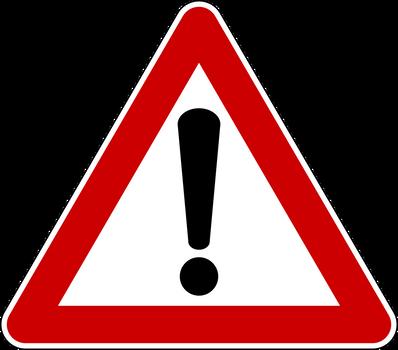 Daniel Lyon, Program Manager, Fraud, Scams and ID Theft Prevention Program Lifespan of Greater Rochester
Daniel Lyon, Program Manager, Fraud, Scams and ID Theft Prevention Program Lifespan of Greater Rochester
Rosario Mendez, Attorney, Division of Consumer and Business Education
The Federal Trade Commission's Bureau of Consumer Protection
Fraud and scams, especially those affecting elders, are prevalent throughout the nation, including among Native populations. The Federal Trade Commission (FTC), through its Consumer Fraud Sentinel Network, reported that from 2018 to 2022, consumers living in Native communities filed 7,368 fraud reports and reported losses of $12.5 million.
Older victims of fraud and scams can suffer catastrophic financial losses as well as negative health and mental health outcomes. In this workshop, the attorney at the FTC Bureau of Consumer Protection who leads outreach to Native communities will be joined by the manager of the Fraud & Scams Prevention Program at Lifespan of Greater Rochester (New York) to discuss how scams work; how scammers target elders, and what people can do to help prevent fraud and scams in Native territories. They will also discuss education, training, and other prevention strategies that can be undertaken in tribal areas and other communities with large Native populations. They will also cover what steps should be taken if an elder finds they’ve experienced fraud, scams or ID theft.
Medicare is not one size fits all. Decisions can be confusing; there's a lot of pressure, and your choices can have long-term impacts on your access to services. Navigating one health care system is challenging enough, let alone two! This workshop will help you understand the differences in the type of coverage provided by Medicare and the Indian Health Service, explain how enrolling in Medicare helps the community, provide information on how to get Medicare, and inform you about programs to help pay for it.
Dr. Jordan Lewis (Aleut), Professor, Associate Director, Memory Keepers Medical Discovery Team
University of Minnesota Medical School - Duluth Campus
Dr. Lauren McLester-Davis (Oneida Nation of Wisconsin), Neuroscientist
Tulane University
Join this session to learn about a draft policy and recommendations from a working group of Indigenous scholars committed to data sovereignty in the context of Alzheimer's disease and related dementia (ADRD) national data sets, specifically data sets where tribal affiliation is unknown. Participants will receive an overview of the working policy and the set of guidelines for researchers seeking to use ADRD data collected from American Indian and Alaska Native populations.
This session will provide opportunities for feedback, input, and comments from tribal leaders about ADRD research happening in Indian Country. This ongoing work centers Indigenous rights to define research participation, the appropriate engagement of community, control of data collected and methods of housing, rights to publication definitions and supports Indigenous capacity building.
The International Association for Indigenous Aging Initiatives & Resources
Breana Dorame (Gabrielino-Tongva Indian Tribe), Tribal Public Health and Aging Associate
Mary O'Meara, Public Health Programs and Communications Associate
The International Association for Indigenous Aging
The International Association for Indigenous Aging (IA2) serves as a national hub for Alzheimer’s disease and related dementias (ADRD) information, technical assistance and resources that serve Indian Country, including but not limited to tribes, tribal leadership, healthcare and public health staff, Urban Indian Health Centers and organizations, and tribal elder services advocates. This session will provide in-depth information about the products available in our Brain Health Resource Center, our monthly newsletters, how to order prints to be delivered to your organization, how to get involved, and more.
StrongHearts Native Helpline
Domestic violence includes physical violence, sexual violence, stalking, and coercive acts by a current or former intimate partner. It can occur across the lifespan of victims of all ages, including older adults. Yet often health data around this issue is difficult to gather because elders are afraid or unable to tell police. They may fear retaliation, not want to create legal problems or may have normalized the abuse due to generational trauma. In this presentation, attendees will learn about domestic abuse in the Native elder community, as well as how StrongHearts Native Helpline can be a trusted resource and culturally appropriate support network.
A GRAB-N-Go binder is a place where you will keep all of your important documents. Do you know where your birth certificate is? How about your immunization and prescription lists? Who's your doctor, lawyer, next of kin and what's their contact information? Where is your will, insurance forms, etc.? This workshop will present you with enough material to begin working on your own GRAB-N-Go binder. Our session will provide a list of necessary items to place into the binder, which will hold all of your important documents. Join us for this fun and helpful gathering!
This workshop addresses the basics of Medicare and how it works with Indian Health Service. Participants will learn how Medicare can save them money so that savings can be used to support other important initiatives, such as diabetes prevention, substance abuse treatments, nutrition, etc. This workshop will also explain the benefits of the Medicare Savings Program and the Low-Income Savings Program, both of which can put money back into elders' pockets. In addition, elders and family caregivers will learn how to avoid Medicare fraud, which is costing taxpayers billions, and where to get more help and information about Medicare.
The Consumer Financial Protection Bureau (CFPB) is a federal agency dedicated to ensuring consumers are treated fairly by financial institutions, lenders, and other financial service providers. The CFPB’s Office for Older Americans focuses on identifying risks and developing resources to help protect older consumers from financial harm.
In this presentation, you will learn about the CFPB’s free resources and tools on topics such as building interagency and organizational collaboration to increase prevention and response to elder financial exploitation, financial caregiving, and making housing decisions. The session will cover the process of submitting a complaint to the CFPB to help get a response to a problem with a financial company and other ways to partner with the CFPB.
MFP Tribal Initiative: 5-State Collaboration Focused on Preserving Culture, Tradition, and Government to Government Relationships through Innovative LTSS Services
Jillian Morris (Yankton Sioux Tribe), Tribal Initiative Project Manager
Washington State Department of Social and Health Service
Melissa Reardon, Project Manager, Money Follows the Person Tribal Initiative
North Dakota State University Department of Public Health
Are you seeking to expand long-term services and supports (LTSS) for tribal nation elders and/or relatives with disabilities who live in your state? Learn how five states have implemented the Money Follows the Person (MFP) Tribal Initiative grant centering tribal sovereignty, cultural preservation, traditional tribal values, and ways of tribal nations in home and community-based services (HCBS). You will learn about the paths Minnesota, North Dakota, Oklahoma, Washington and Wisconsin have taken to increase HCBS and LTSS services in their states, as well as the continued advocacy efforts of this five-state partnership.
Leonard Geshick (Bois Forte Band of Chippewa), Indian Elders Coordinator
Minnesota Board on Aging (State Unit on Aging)
Minnesota's State Unit on Aging, the Minnesota Board on Aging has worked hard to increase tribal participation in Older Americans Act (OAA) Title III programs. This session will cover Native policy within the OAA and the requirements coordinated with Indian Country, examples of what has worked to increase coordination and what has not and highlight the progress we have made.
Presenting Results from 2021 NICOA Workshop: Help Develop an Alzheimer’s Disease Research Program for Native Elders
Breanna Jones (Cherokee and Seminole), Research Coordinator
Dr. Patrik Johnasson, Professor
Elson S. Floyd College of Medicine, Washington State University
American Indians and Alaska Natives are underrepresented in Alzheimer’s disease research. Without greater representation Native communities may not benefit from existing research initiatives. To learn what type of research study would encourage Natives elders to participate in Alzheimer’s disease research, a team of researchers from Washington State University asked elders participating in the 2021 National Indian Council on Aging conference to provide feedback in workshops on the clinical research protocol used by the University of Washington Alzheimer’s Disease Research Center.
In addition, we asked their views on the impact of COVID-19 on their communities. To solicit the feedback we conducted listening sessions and surveys. Based on the feedback we developed a clinical assessment we are currently using to recruit Native elders. In this workshop we will present the findings from our listening sessions and surveys.
Breana Dorame (Gabrielino-Tongva Indian Tribe), Tribal Public Health and Aging Associate Mary O'Meara, Public Health Programs and Communications Associate
The International Association for Indigenous Aging
The International Association for Indigenous Aging (IA2) will be piloting listening sessions organized by interested parties such as tribal members, tribal leadership, health care providers, Title VI staff, consumers/caregivers, and non-tribal public health to provide brief interactive feedback related to content on dementia and guided discussion on dementia and brain health based on concepts and priorities identified by IA2’s advisory group. Stop by to share your thoughts about various brain health products.
This presentation highlights recognizing and responding to elder abuse within Indian Country. It will discuss unique cultural contexts, challenges, techniques, and sensitivities that support identifying abuse among Native American elders. The session provides insight into signs of physical, emotional, financial, spiritual, sexual, and neglect-related abuse, while also discussing the importance of developing and utilizing an elder abuse code. The presentation aims to empower participants to address elder abuse effectively while accounting for cultural considerations.
Let's share stories! Does your tribe have a tradition of honoring special people? The Eastern Band of Cherokee Indians finds a way by bestowing the title Beloved Woman or Beloved Man on someone who has made significant contributions to the Cherokee people. Please join us to share your traditions and tell us about some of the amazing people who make life in your community better!
The dominate colonialized society continues to embrace the social construct of gender binary, in which gender non-conforming are shunned, ignored, or placed in the back for any conversation, assistance, policy changes, and inclusion. Our Two Spirit ancestors have fought for their place in tribal communities, but the heteropatriarchy leadership, influence of Christianity, and anti-transphobia policies have placed Two Spirit lives in harm's way with harassment, bullying, and profiling, which may lead to physical, emotional, and sexual assaults.
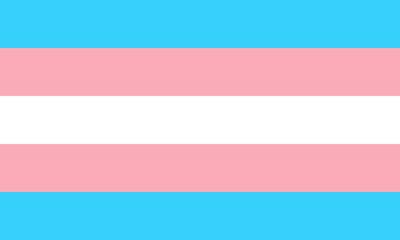
Presenter Trudie Jackson will share her personal experience of relocating from the Navajo Nation in 1983 to Phoenix, Arizona, as well as the struggles she endured such as dropping out of college, engaging in survival sex work, incarceration, substance abuse, and physical assault resulting in hospitalization. Trudie will share how she managed to change her life, making a second attempt at college, securing employment, and becoming a mentor to many American Indian Two Spirit people across the country.
Share Your Story Today: Indigenous Perspectives and Taboos on Memory Loss
Breana Dorame (Gabrielino-Tongva Indian Tribe), Tribal Public Health and Aging Associate
Mary O'Meara, Public Health Programs and Communications Associate
The International Association for Indigenous Aging
The number of older adults is increasing. An estimated 569,000 American Indians and Alaska Natives are 65 years or older. This number is expected to triple over the next three decades. The oldest cohort of adults, ages 85 and older, is projected to increase more than seven-fold by 2050. The International Association for Indigenous Aging (IA2) is currently creating resources for elders and caregivers affected by dementia that will help start discussions to let them know others are going through the same experiences.
IA2 is looking to gather stories, including the perspectives of Native community members, elders, caregivers, friends, family, and those affected by memory loss or aging. We are giving gift cards to those who participate by sharing their story and a photo. Stop by to share your story!
The National Indian Council on Aging
Visit the tech clinic to learn how to use technology to make your life easier and connect with others. Receive instruction on basic iPhone and computer navigation, email and messaging, online shopping and banking, social media and video chatting, and accessing news and entertainment. Explore helpful apps to improve your health and safety, create a social media account or discover how to customize your device to increase readability.
Are you having problems with your iPhone, laptop, or iPad? Bring your questions and your devices! Whether you want to learn more about your device or troubleshoot a problem, the tech clinic is here to help.
The CDC and the Alzheimer’s Association are partnering with tribal organizations and leaders to update the Road Map for Indian Country. The Alzheimer’s Association is seeking feedback and input from tribal nations and tribal health organizations about the Healthy Brain Initiative (HBI) Road Map for Indian Country (RMIC).
Join us at this workshop to share your successes and challenges of implementing actions of the HBI RMIC through a guided discussion. Participants should be familiar with the HBI RMIC and represent a tribal nation or tribal health organization that has engaged in work on dementia, cognitive health, or caregiving. If you meet these qualifications and are interested in participating, please join us.
National Aging and Disability Transportation Center / USAging
The National Aging and Disability Transportation Center (NADTC), co-managed by USAging and Easterseals, will provide a forum for Native elders to discuss their transportation challenges and needs, and for Title VI Native American programs to share their perspectives and solutions around providing transportation for the elders they serve.
This session will also discuss highlights and outcomes from a Title VI luncheon held in July during the USAging conference around the topics of transportation challenges, funding and partners. Session presenters will gather additional input from attendees and discuss transportation technical assistance and information NADTC can offer Native American Title VI programs.
Washington State Tribal Crisis Coordination Plan and BH/Dementia Road Map for First Responders
Bethany Phenix-Osgood, Planning and Resouces Director, Tribal Liaison, Lt. Fire Fighter, Nationally Registered Emergency Medical Technician
Washington State Department of Social and Health Services
Jamie Teuteberg, Life Stages Manager, Health and Aging Policy Fellows Program
Washington State Health Care Authority
This session will give an overview of Washington's Tribal Crisis Coordination "Multi-Agency" Plan to address behavioral health, mental health, and dementia. The plan promotes practices to align with the intention of honoring tribal sovereignty, the medical home model, continuity of care and treatment plans, prioritizing culturally appropriate services, early discharge planning, wrap around housing and supports, and reentry plan alignment.
Our team works to address the increasing substance use, mental health, dementia, and other crisises occurring in our communities in partnership with the tribes to ensure communication, patient care, care coordination, and treatments plans honor each individuals wishes, rights, and dignity. This presentation walks through our collective efforts to make positive changes with state agencies to do this work in partnership with all of our tribal partners.
This workshop will take a brief look at all types of benefits available through the Social Security Administration, including the Supplemental Security Income (SSI), disability, and survivor benefits. Presenters will focus on commonly missed benefits and help you understand what Social Security can mean to you and your family’s financial future. This workshop will cover Medicare and other available health savings programs and discuss some important factors to consider for eligibility. You can now request an appointment to file for benefits for yourself or someone you are helping. Presenters will answer questions, explain necessary documents and help you navigate the various types of benefits for Social Security and SSI.





Dr. Cole Allick (Turtle Mountain Band of Chippewa Indians) is a research manager and outreach liaison at the Institute for Research and Education to Advance Community Health (IREACH), a large research institute at Washington State University that conducts transdisciplinary research devoted to promoting health and health care equity among Indigenous and rural populations. His primary role is leading research engagement and outreach activities focused on urban and rural Native populations.
Peggy Jo Archer is the Native American Elder Justice Initiative (NAEJI) project coordinator for the International Association for Indigenous Aging. She has unique experiences in managing program operations for federally funded projects such as the National Indigenous Elder Justice Initiative at the University of North Dakota and the NAEJI National Resource Center on a state, regional, and national level. She has a degree in the administration of criminal justice from Park University.
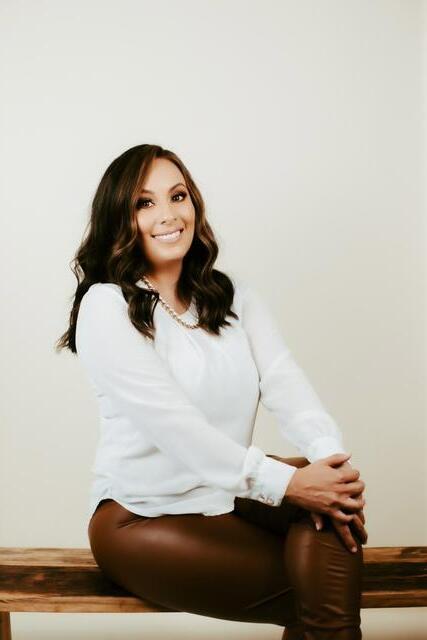
Amie Barnes is the program manager for the southwest region of the National Indian Council on Aging's Senior Community Service Employment Program. She holds a bachelor’s degree in psychology and development and has worked with families and communities for the past decade, serving both rural and urban populations. Through her years of casework experience, Amie brings dedication, knowledge and empathy to advocate for and assist elders to improve economic well-being, health and access to services.
Bill Benson is the board president of the International Association for Indigenous Aging (IA2). He has worked in aging and health for 36 years, and co-authored numerous papers on long-term care issues in Indian Country. As former staff director for the Senate Labor Subcommittee on Aging, Benson oversaw the successful reauthorization of the Older Americans Act in 1992. Under his leadership, that year’s reauthorization included Title VII, Subtitle B–Native American Organization and Elder Justice Provisions.
Robert Blancato is president of Matz, Blancato & Associates. He is national coordinator of the Elder Justice Coalition, executive director of the National Association of Nutrition and Aging Services Programs, a delegate to the 2022 White House Conference on Hunger, Nutrition and Health, the executive director of the 1995 White House Conference on Aging, senior advisor in the House Select Committee on Aging and the winner of the American Society on Aging's 2020 Hall of Fame Award.

Lakeshia Cade is a program manager for the central region of the National Indian Council on Aging's Senior Community Service Employment Program. She has a bachelor of arts degree in management and an associate’s degree in business from the University of Phoenix, and is continuing her education to receive a master's degree in management. She established a walk team with the Alzheimer’s Association Oklahoma Chapter.

(Cheyenne and Arapaho Tribes of Oklahoma) is the executive director for United South and Eastern Tribes (USET). Established in 1969, USET is a nonprofit, inter-tribal organization that collectively represents its 26 member tribes at the regional and national level. He works to protect and promote the sovereignty rights of USET member nations. Carroll is a strong advocate for all Native people and actively works to ensure that the United States fulfills its trust responsibilities and obligations to Indian Country. He is a descendant of Cheyenne Peace Chief Black Kettle.
Cindy Curley is a consultant for the National Indian Council on Aging, assisting in the creation of NICOA’s Compass website, which focuses on longterm care in Indian Country. Previously she was the owner of a medical claims and billing consulting business. For more than 12 years she worked with tribes as a financial and administrative officer, health director and as the administrative director of Rehoboth McKinley Christian Hospital in Gallup, New Mexico.
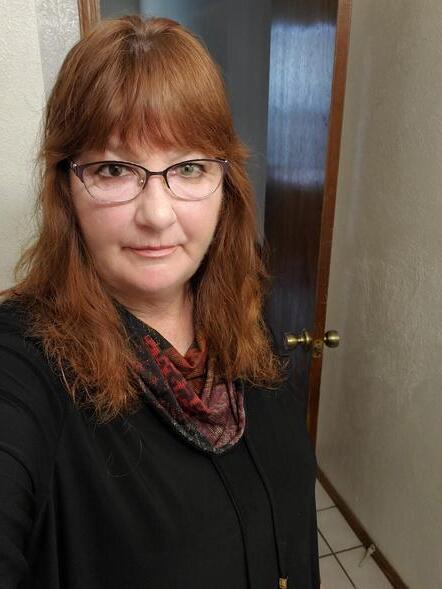
James Delacruz has been with the National Indian Council on Aging for over 40 years serving as its chairperson, vice-chairperson and as a board member. He was the director of Quinault Nation’s Title VI program, served as a delegate to the 1995 and 2005 White House Conference on Aging, and is the chairperson of National Congress of American Indians’ Elders Subcommittee. He has been involved as a member of commissions, boards and organizations and advocated for tribal elders at the local, state and federal levels.

Betti Delrow (Navajo Nation) is a member of the National Indian Council on Aging’s board of directors. She has been involved in the health field for over 30 years and is the former director of the Navajo Nation Special Diabetes Program. She was instrumental in establishing special diabetes programs in the eight service areas of the Navajo Nation. She established the Window Rock Wellness Center where she implemented programs such as indoor biking, Zumba, kickboxing, cross training, core training and Yoga.


Denise Dillard (Inupiaq Eskimo) is a professor at the Elson S. Floyd College of Medicine Department of Medical Education and Clinical Sciences and codirector of the Institute for Research and Education to Advance Community Health at Washington State University. She is a licensed psychologist and has conducted postdoctoral quantitative and qualitative research since 1998. She has served as the director of research for Southcentral Foundation and on the National Institutes of Health Tribal Advisory Committee.

Breana Dorame (Gabrielino-Tongva Indian Tribe) is a Tribal Public Health and Aging Associate for the International Association for Indigenous Aging. She has a bachelor of science degree in zoological sciences from the University of California-Santa Barbara. She is actively involved in her tribal community. She works closely with her multi-generational family for federal recognition and has been an anthropological monitor for sacred land protection. Breana is interested in the public health and research realm in Native communities.

Tatiana Fassieux is a training and education specialist for California Health Advocates, an organization dedicated to Medicare advocacy and education for Californians. She has served various terms as board chair, and has been affiliated with this organization for over 25 years. She conducts many training sessions for California’s Health Insurance Counseling & Advocacy Program (HICAP) volunteers and other organizations. HICAP is the state’s health insurance assistance program (SHIP).
Dr. Gary Ferguson is a research associate professor and director of outreach and engagement at Washington State University’s Institute for Research and Education to Advance Community Health (IREACH). He is Unangax (Aleut), enrolled in the Qagan Tayagungin Tribe and is originally from the Shumagin Islands community of Sand Point, Alaska. Being a naturopathic physician, he has a passion for wellness-based, culturally connected approaches to achieving community health in Indigenous communities.
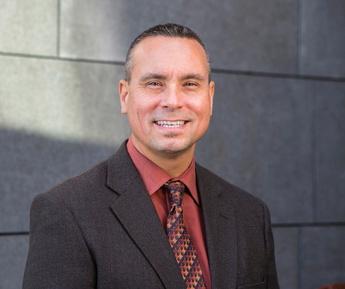
Reneé Ferguson is the acting deputy director of the Office of Native American Partnerships for the Social Security Administration (SSA). She has more than two decades of SSA experience including improving agency initiatives on improper payments to reduce work related overpayments in the disability population and supporting initiatives to identify potential missed entitlements to beneficiaries. For the last seven years, she served as the executive lead for Native affairs, striving to reduce barriers to public service.

Kyla Foster is a victim advocate and services staff supervisor at StrongHearts Native Helpline, focusing on supporting survivors of domestic violence and sexual assault since 2021. She previously served as an assistant safehouse coordinator at the Family Violence Prevention Center, where she managed hotline operations and shelter logistics. Kyla also brings experience in crisis intervention and adult case management, holding a bachelor of arts degree in psychology from the University of Dayton.

Joe Gavalis is a law enforcement coordinator for the North Georgia Elder Abuse Task Force. He is a retired federal agent with a long law enforcement history and a passion for protecting elder victims.
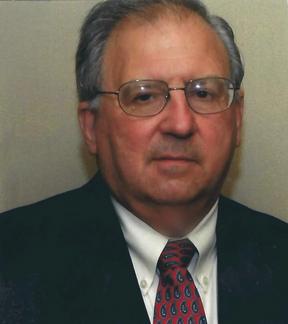
(Bois Forte Band of Chippewa) is an Indian elders’ coordinator for the Minnesota Board on Aging (State Unit on Aging), where he has worked for five years. He is a regular presenter for the National Older Americans Act Title VI Conference, emphasizing advanced strategies for the coordination of Title VI directors and tribal leaders. He aims to increase access to Title III resources for Indian Country. He received his bachelor of arts degree from the University of Minnesota Twin Cities.

R. Turner Goins is a professor at Western Carolina University. For the past 25 years, she has been conducting research in the areas of Native aging. Much of her work involves partnering with tribal communities to help them learn more about their elder-related health priorities.

Dr. Neil Henderson (Choctaw Nation) is a board member of the International Association of Indigenous Aging. He has over 40 years of professional work about the prevention of disease, reduction of health disparities, and the building of healthier lives among the youth, adults, and elders in culturally diverse populations. He conducted bio-cultural research on Alzheimer’s disease in American Indian tribes and conducted geriatric health care education for culturally diverse providers across the United States.

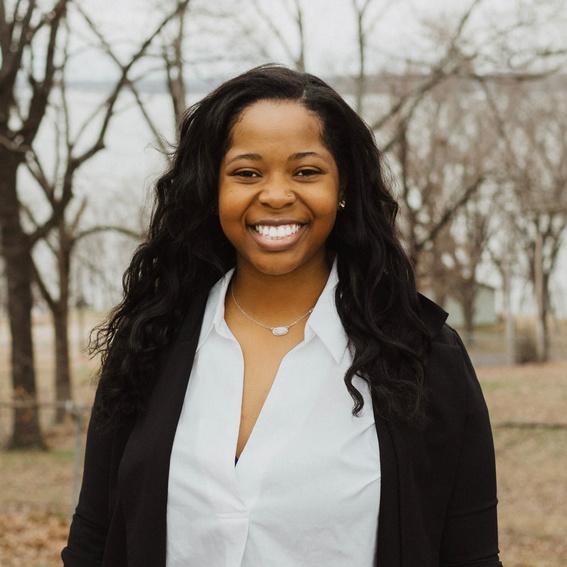

Trudie Jackson is of the Bitterwater and Folded Arms People. Her maternal grandfather is of the Mexican People and her paternal grandfather is of the Yucca-Strung-Out-In-A-Line People. Her advocacy has led her to spearhead the Southwest American Indian Rainbow Gathering and the Miss Indian Transgender Arizona pageant. She creates space for Two Spirit and Trans Indigenous people by coordinating community events like the Transgender Day of Remembrance and the National Native HIV/AIDS Awareness Day.
Kelley Jansen (Unangax and Sugpiaq) is a researcher for Southcentral Foundation. She is an Alaska Native and an enrolled member of Ninilchik Tribe. She is a licensed professional counselor in Alaska and a nationally credentialed addictions counselor. She has clinical experience in treating behavioral health disorders and a research background in various behavioral and public health topics.


Dr. Patrik Johansson is a professor at Washington State University’s Elson S. Floyd College of Medicine. A past provider with Boston’s Urban Indian Health Program, his background is in public health and primary care, with an emphasis on rural and American Indian health disparities. His research focuses on the prevention of cardiovascular disease risk factors, including risk factors for Alzheimer’s disease and related dementias. He is the co-Iead on the Wabanaki Native American Research Center for Health.
Breanna Jones (Cherokee and Seminole) is a research coordinator in the Elson S. Floyd College of Medicine at Washington State University. Her research experiences include serving as a research coordinator for Practice Based Research Network, Northwest Health Education Research Outcomes Network, and a variety of other projects focusing on cognitive Impairment and Alzheimer’s disease in minority communities. Her ancestry has driven her passion for promoting research awareness in underserved communities.
Natalie Kean is the director of federal health advocacy for Justice in Aging. She advocates to defend and improve health care and home- and communitybased services (HCBS) programs for elders. Her background is in ensuring marginalized populations and people with limited income have access to care through Medicaid, Medicare, the Affordable Care Act Marketplaces, and other federal programs. Previously, she served as a law clerk to a US magistrate judge in Georgia. She holds a juris doctor degree from Saint Louis University.

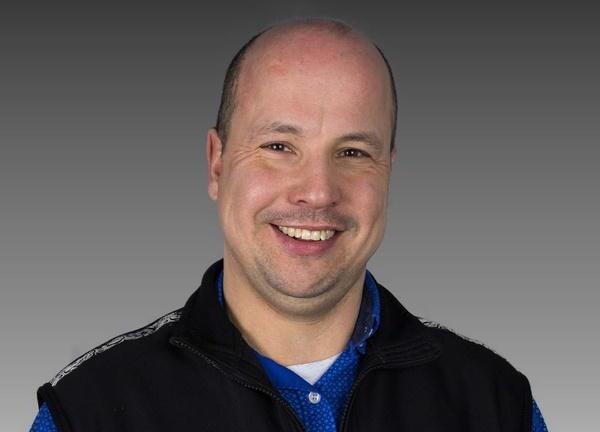
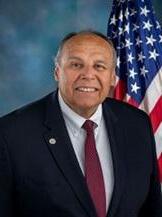

Brynne Keith-Jennings is an engagement and policy fellow with the Consumer Financial Protection Bureau’s (CFPB) Office for Older Americans, where she works on policy issues that affect elders’ financial lives. Prior to joining the CFPB, she had over a decade of experience working on policy issues with governmental and non-governmental organizations, most recently working on economic security program policy issues with the Center on Budget and Policy Priorities and the D.C.’s Department of Human Services.
Robert LaFromboise is a member of the Sisseton-Wahpeton Oyate of the Lake Traverse Reservation. He has been an advocate for the healthcare needs of his people in South Dakota, as well as a member of the National Indian Council on Aging’s Board of Directors for over 12 years.

Desiree Lapahie (Navajo Nation) is a data analyst for the National Indian Council on Aging, where she focuses on bringing Native elder concerns to the aging network and other interested stakeholders. Her professional experiences include caregiving and advocacy in elder issues. For five years, she worked as a caregiver on the Navajo reservation and experienced the lack of Native perspective in caring for people with Alzheimer’s disease. She has a bachelor of arts degree in economics from the University of New Mexico.

Dr. Jordan Lewis (Aleut) is the associate director of the Memory Keepers Medical Discovery Team and a professor at the University of Minnesota Medical School, Duluth campus. His expertise is in Indigenous successful aging, generativity and Indigenous dementia caregivers’ needs and strengths. He developed the concept of Indigenous cultural generativity and the role of cultural practices and generativity in dementia caregiver health and wellbeing.
Richard Litsey (Muscogee [Creek] Nation) is the director of the Office of Native Partnerships for the Social Security Administration (SSA), where he is the primary point of contact for external and internal stakeholders on tribal affairs. Before returning to the SSA, he worked as the director of policy and advocacy for the National Indian Health Board and engaged with the Indian Health Service, Centers for Medicare and Medicaid, Health and Human Services and other federal partners on issues from tribal leaders.
Leslie Maly is the director of the National Indian Council on Aging's (NICOA) Senior Community Service Employment Program. In her 17 years at NICOA, she has helped elders across the country in both urban and rural areas. By witnessing the struggles many older Americans face due to lack of financial stability, education and work experience, she is committed to the research and the hard work it takes to help implement improvements in the aging community.
Rosario Mendez is an attorney in the Division of Consumer and Business Education of the Federal Trade Commission's (FTC) Bureau of Consumer Protection. She co-leads the FTC's Every Community Initiative, which supports the agency's work to address the disproportionate impact of fraud and other practices on communities of color. She’s a graduate of Loyola University College of Law, John Hopkins University Carrey Business School, and the University of Rochester.
Rebecca Owl Morgan (Eastern Band of Cherokee Indians) is a project coordinator at the National Indian Council on Aging (NICOA). She is an enrolled member of the Eastern Band of Cherokee Indians located in the Great Smoky Mountains of North Carolina. She has degrees in history and library science. Her work at NICOA has highlighted the strengths and proud history of Native people and the helpful tools elders can use to become powerful self-advocates for themselves and their tribe.
Jillian Morris (Yankton Sioux Tribe) is the tribal initiative project manager in the tribal affairs unit, which is part of the Washington State Department of Social and Health Services’ Aging in the Long-term Support Administration. She is a descendant of Chief War Eagle and has a bachelor of arts in human development from Washington State University. She chose the field of aging because elders are the link between our past, present, and future.


Mary Ann O'Meara is the public health programs and communications associate for the International Association for Indigenous Aging. She received a bachelor of science in community health education from Central Michigan University and a master's in public health from the University of Michigan. Her work included experiences with the Saginaw Chippewa Indian Tribe, an internship combatting homelessness, and mentoring youth in a peer-to-peer drug prevention organization.



Sonia Palmer is the chief operations officer for StrongHearts Native Helpline, a national nonprofit dedicated to addressing domestic violence within Native communities. She is a seasoned professional with more than 25 years in the nonprofit sector, where she has built a reputation for her expertise in operations, fundraising, and marketing/communications. Educated at SUNY at Buffalo and the University of Minnesota, she has an unwavering commitment to building capacity and ensuring sustainability across diverse sectors.
LuAnn Pfeifle is a job developer for the National Indian Council on Aging's Senior Community Service Employment Program in South Dakota. She assists elders in obtaining satisfying employment. She has two master's degrees and is an accomplished speaker, trainer and educator. She has worked for government contractors, universities, community colleges and the public school system. She is happiest when surrounded by her four children, four grandchildren and husband of 40 years.
Erin Poole is a research instructor and associate director of the Centers for American Indian and Alaska Native Health at the University of Colorado, where she supports the Centers' mission of promoting the health and wellbeing of Native people of all ages through research, training, continuing education, technical assistance, and information dissemination. She manages several large multi-site Center research grants focused on a variety of health disparities including Alzheimer's disease and related dementias.
Melissa Reardon is the project manager of the Money Follows the Person Tribal Initiative (MFPTI) for the North Dakota State University Department of Public Health. MFPTI seeks to identify best practice recommendations for establishing long-term services and supports in Indian Country. Melissa works closely with tribal nation partners to assure coordination and policy development across tribal nation, state and federal systems. She has a master of public health degree, specializing in American Indian health.
Shelby Roberts is the director of the healthy brain initiative at the Alzheimer’s Association. She oversees the national implementation of the Healthy Brain Initiative Road Map Series and has spent her career working on the implementation and evaluation of public health strategies to reduce the risk of chronic disease.


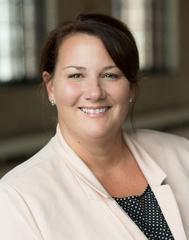

Kayla Sawyer is a technical communications specialist for the National Indian Council on Aging. She graduated from Seton Hill University with a degree in new media journalism and has over 11 years of experience with digital communications.
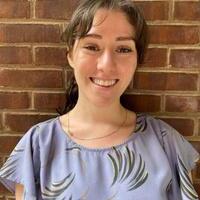
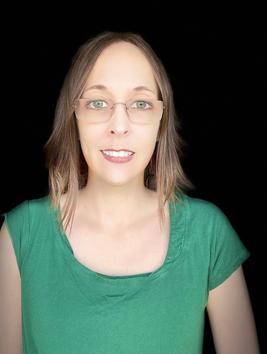
Shawn Secatero (Canoncito Band of Navajo), Ph.D. is an associate professor in the University of New Mexico Teacher Education program. His research concentrates on holistic learning, Indigenous leadership, dual enrollment, rural education, and higher education. He has 30 years of teaching experience in state and tribally controlled schools and other Native American leadership initiatives. He has published and presented research on his highly acclaimed Corn Pollen Model that has inspired organizations, students, and schools.
John Eagle Shield Sr. (Standing Rock Sioux Tribe) has directed the Standing Rock Sioux Tribe’s Community Health Representative (CHR) program for the past 35 years. He is recognized as a traditional leader by his people, and has advocated for the maintenance of tribal culture, practices and the preservation of tribal languages his entire life.

David Somers is a senior research associate with USAging and the National Aging and Disability Transportation Center (NADTC) where he writes and produces publications and communications on accessible transportation for older adults and people with disabilities. Prior to USAging, he served as director of operations and development for a nonprofit in Colorado, providing human services transportation and homecare services.
Sahar Takshi is a staff attorney with Justice in Aging, where she implements their initiative on advancing equity and provides technical assistance for the National Center on Law and Elder Rights. Previously, Sahar represented lowincome seniors in Washington, D.C., in cases involving home and communitybased care and advocating for sustainable solutions to long-term care. Sahar holds a degree of juris doctor from the American University Washington College of Law.
Billie Tohee is of the Otoe-Missouria Tribe of Indians in Oklahoma and the Iowa Tribe of Oklahoma. She has been serving as chairwoman of the National Indian Council on Aging’s board of directors for the past two years. She has a bachelor’s degree in political science from the University of New Mexico.
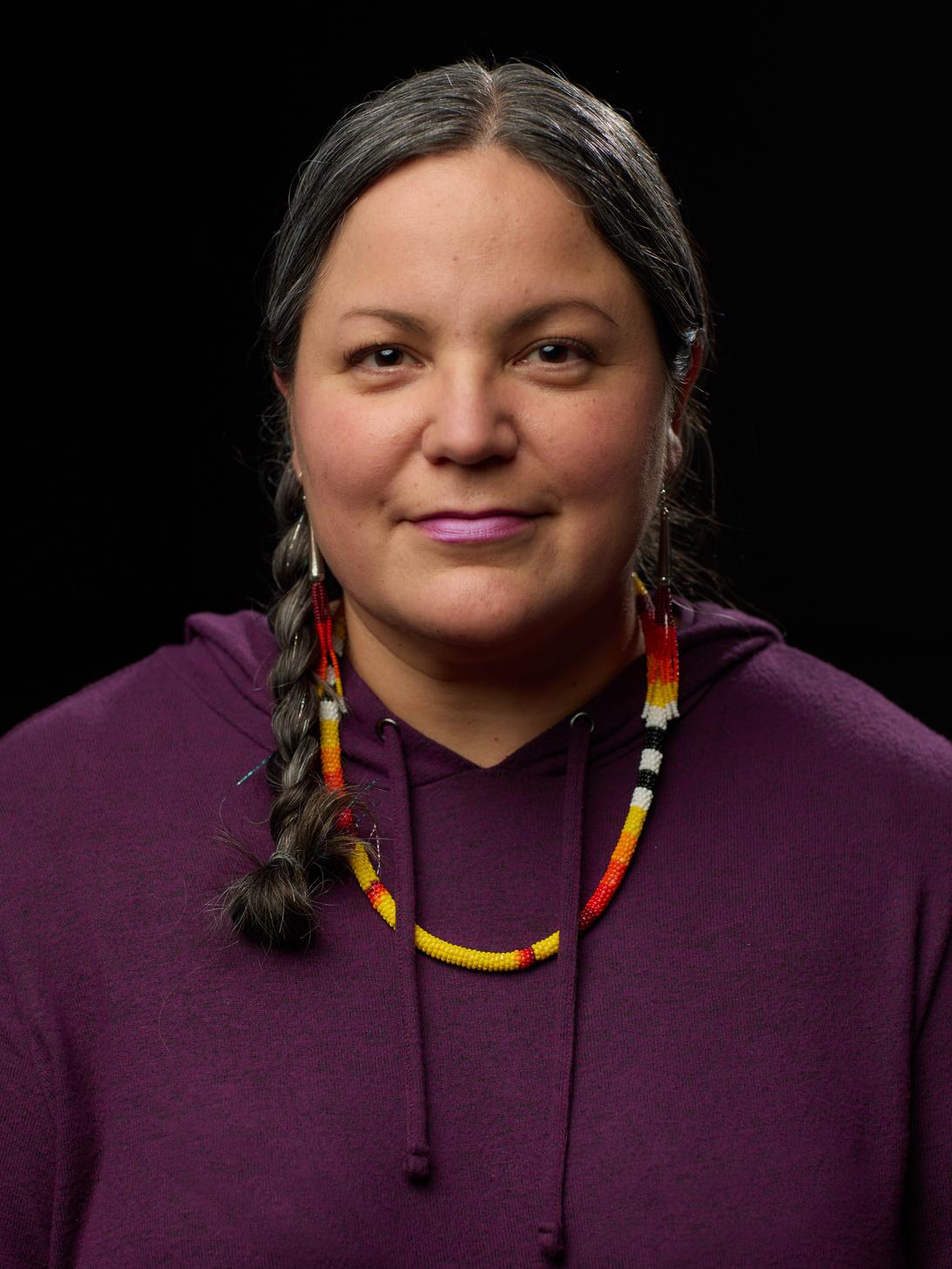
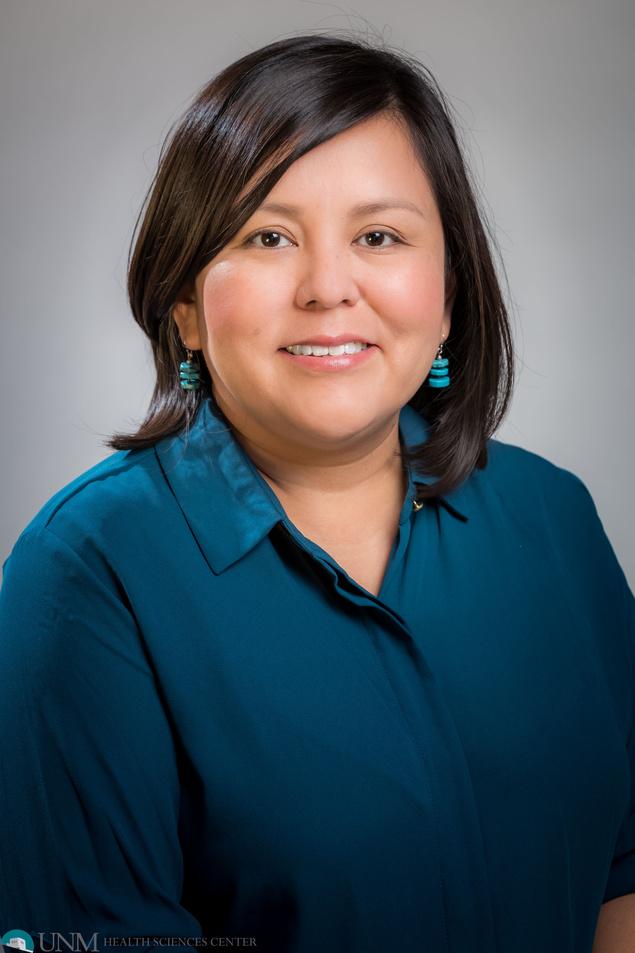
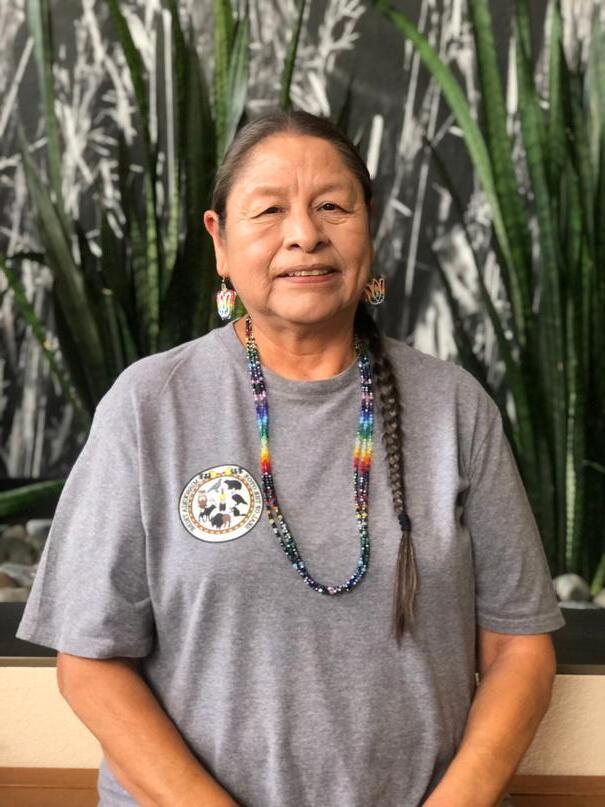
Jose Troncoso is the records and compliance manager of the National Indian Council on Aging’s (NICOA) Senior Community Service Employment Program (SCSEP). JT has been with NICOA for 15 years with a previous role as southwest region program manager, focusing on helping elders find work, develop new skills and talents and build their financial security through the SCSEP program.

Nathania Tsosie (Navajo Nation) is associate director of the Center for Native American Health and a lecturer at University of New Mexico School of Medicine. Her dissertation work sheds light on the influences and factors that impact the well-being of urban American Indians. Her clans, including Tótsohnii (Big Water), Naakaii Dine’e (Mexican), Ta’neesdzahnii (Tangle Clan), and Tsi’naajini (Black Streak Wood People), ground her in her rich cultural heritage and inform her work in promoting health equity and social justice.
Rodnée Warr is a business execution manager for Wells Fargo Advisors. She has 20 years of experience in mitigating risk for older adults through legal, risk and compliance departments as well as a master's degree in gerontology. She has built the last 10 years of her career on how to detect, prevent, and report older and vulnerable adult abuse. She manages a team that provides guidance to Wells Fargo Wealth Advisors on elder abuse and diminished capacity concerns.
Dr. Blythe Winchester (Eastern Band of Cherokee Indians) is the director of geriatrics services at Cherokee Indian Hospital. She received her MD and MPH at UNC-Chapel Hill, and her geriatrics fellowship at the Mountain Area Health Education Center in Asheville, NC. She is board-certified in family medicine and geriatrics and is a certified medical director through the American Board of Post-Acute and Long-Term Care Medicine. She was also named a 2021 Fellow through the American Geriatrics Society.


Kris Winterowd is program manager of the State Health Insurance Assistance Program (SHIP) and Senior Medicare Patrol (SMP) for the state of New Mexico. SHIP is part of the New Mexico Aging and Long-Term Services Department, and offers free, unbiased, expert information and assistance to New Mexico residents. As a former teacher-turned-Medicare specialist, she has a master’s degree in education as well as extensive training from the Centers for Medicare and Medicaid (CMS).
Lynn Wise is the program manager for the North Dakota region of the National Indian Council on Aging’s Senior Community Service Employment Program’s (SCSEP). She has five years of experience with SCSEP, 10 years as a customer service manager and 25 years as the owner of a concrete company. She is married and has two children, and enjoys fishing, camping, and rescuing animals.

Larry Wright, Jr. (Ponca Tribe of Nebraska) is the executive director of the National Congress of American Indians. He served as chairperson of the Nebraska Commission on Indian Affairs’ board of directors and as chairperson of the Nebraska Inter-Tribal Coalition. He is a military veteran with a diverse background in education, management and entrepreneurship.
Tony Yarbrough is of Native American heritage, and he is an active law enforcement officer in the Rome Police Department in Georgia. He investigates crimes against elders and has a wide range of experience protecting elder victims.

Edie Yau is the director of diversity, equity and inclusion engagement for the Alzheimer’s Association, where she leads strategic initiatives to reach underserved communities in pursuit of health equity. She leads national partnerships to increase access to resources and support for all those affected by Alzheimer's disease and other dementia. Yau collaborates with partners to spearhead culturally tailored initiatives, ensuring communities have access to Alzheimer’s and dementia education and resources.
